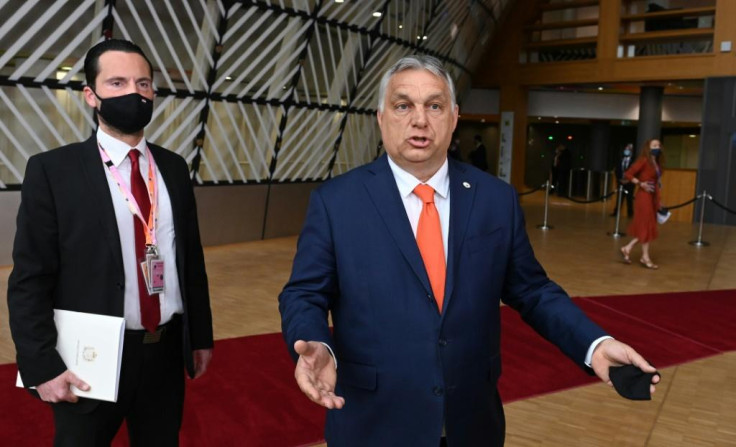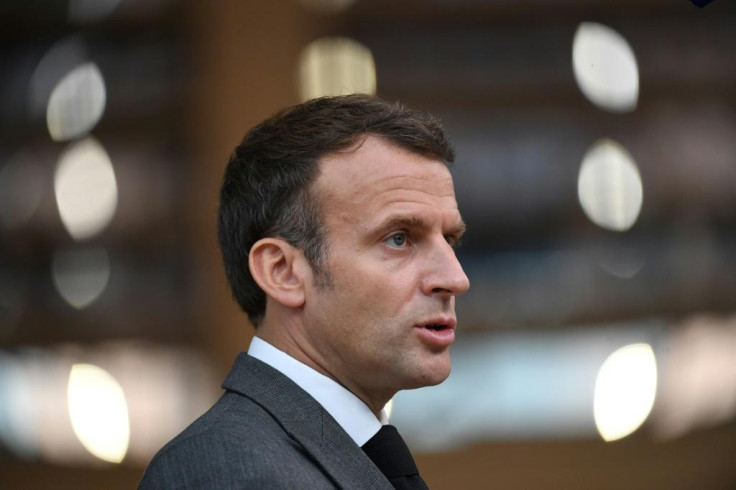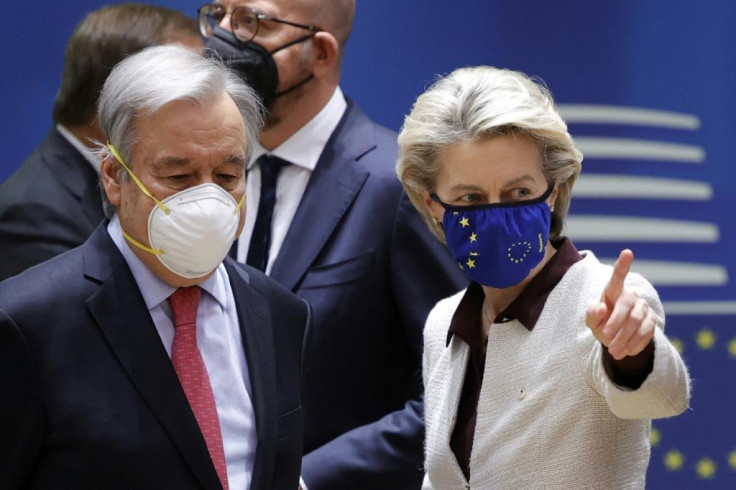EU leaders criticise Hungary over LGBT law
Another point of friction in the summit was a surprise push by Germany and France to revive dialogue with Russia by considering holding a summit with President Vladimir Putin.
EU leaders holding a summit on Thursday attacked Hungary's Prime Minister Viktor Orban over a new law in his country banning LGBT content in schools which they view as homophobic and contrary to EU values.
"You have passed the line. This time it is too much," Dutch Prime Minister Mark Rutte admonished Orban in the Brussels meeting, according to an EU official in the room.
Others joined in the criticism, delivering a scathing broadside to Hungary's nationalist leader, who has frequently clashed with Brussels and with EU counterparts over his socially conservative policies and perceived undercutting of democratic norms.

"Being homosexual is not a choice. Being homophobic is a choice. We cannot accept a legislation that is legitimising such a behaviour," Belgian Prime Minister Alexander De Croo weighed in, the same EU official said.
"You've crossed a red line," Luxembourg's Prime Minister Xavier Bettel was reported to have added, while Sweden's leader, Stefan Lofven, declared: "Let me tell you Viktor: Swedish people are not interested to send money to a country" which acts like that.
Such was the anger over the law that Rutte, just before entering the summit, told journalists that, "for me, Hungary has no place in the EU anymore".
The extraordinary attacks overshadowed the first day of the two-day summit, whose agenda was meant to have focused on fraught ties with Russia and Turkey, and the bloc's handling of the coronavirus pandemic.

As he turned up to the summit, however, Orban was characteristically defiant, insisting his fellow leaders had misunderstood the legislation.
"This is not against homosexuality... It's about the right of the kids and the parents," he said.

Seventeen of the EU's 27 nations -- including heavyweights Germany, France, Italy and Spain -- signed a declaration this week raising "grave concerns" over the Hungarian law.
A subsequent letter on Thursday signed by the same countries deplored any threats to "the principle of non-discrimination on grounds of sexual orientation".
Earlier this week UEFA, Europe's football governing body, rejected a plan by Munich to light up its stadium in rainbow colours for a Germany-Hungary match on Wednesday.
The European Commission has said it will challenge the basis of the law, with its President Ursula von der Leyen insisting on Wednesday it "clearly discriminates against people on the basis of their sexual orientation".
UN chief Antonio Guterres, who attended the opening of the summit, said of the Hungarian law: "No discrimination is acceptable in any circumstances, and any discrimination against LGBTIQ+ people is totally unacceptable in our modern societies."
Orban, though, dismissed the onslaught.
He accused EU leaders of not reading the text of the law and said if they raised it with him he would tell them "it's about how a child learns about sexuality... and decisions about that are exclusively the business of parents".
Another point of friction in the summit was a surprise push by Germany and France to revive dialogue with Russia by considering holding a summit with President Vladimir Putin.
German Chancellor Angela Merkel said the leaders would talk about "how to maybe create formats for talks". French President Emmanuel Macron vowed the EU would be "demanding" in any discussion with Putin "because we will not give up any of our values".
But EU countries near Russia were less convinced. Latvian Prime Minister Krisjanis Karins said "the Kremlin does not understand this kind of politics", only displays of power.
Copyright AFP. All rights reserved.
This article is copyrighted by International Business Times, the business news leader





















